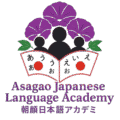
At Asagao Japanese Language Course, we believe that learning Japanese Language is more than acquiring a language—it’s about embracing a rich culture, unlocking international opportunities, and transforming your personal and professional life.
Based in the culturally vibrant city of Lucknow, Asagao offers a comprehensive, immersive learning experience tailored for students, professionals, and enthusiasts alike. Whether you’re preparing for the JLPT, aiming for a career in Japan, or exploring a passion, we are here to guide your journey every step of the way.

At Asagao, we blend interactive language teaching with deep cultural immersion. Our unique methodology is built on core Japanese values and learning philosophies:
- Doutoku (道徳) – Japanese moral education
- Shu-Ha-Ri (守破離) – The path to mastery: Obey, Break, Detach
- Kaizen (改善) – Continuous improvement
- Gambaru (頑張る) – Perseverance and resilience
- Senpai-Kohai (先輩・後輩) – The mentor-apprentice dynamic
- Reigi (礼儀) – Respect and etiquette
- Wabi-Sabi (侘寂) – Embracing imperfection
We go beyond textbooks—offering live conversational practice, role-plays, cultural workshops, and professional communication training—to ensure you’re not only exam-ready but also confident and culturally fluent.
Designed for Real-World Success
Master Japanese for JLPT, travel, jobs, and daily use with focused, practical lessons.
Certified & Experienced Faculty
Learn from native Japanese speakers and Indian experts with in-country experience.
Spoken Japanese Emphasis
Practice grammar, sentence building, and conversations daily to gain fluency.
Culture-Infused Curriculum
Learn essential customs, etiquette, and workplace behaviors needed in Japan.
Career-Centric Training
Special modules for business Japanese across IT, services, and manufacturing.
Fun & Engaging Classes
Interactive sessions using games, stories, group tasks, and digital tools.
Online & Offline Classes
Join in-person classes in Lucknow or online from anywhere—weekday or weekend.
Targeted JLPT Preparation
Practice with mock tests, Japanese materials, and expert coaching for N5–N1.
Small Batch Sizes
Enjoy personalized attention and support in every class with fewer students.
Live the Spirit of Japan
Experience the soul of Japan—its values, language, and lifestyle—at Asagao.
Our Mission
At Asagao, our mission is to build a meaningful bridge between India and Japan— not just through language, but through culture, values, and opportunity. We are dedicated to empowering learners with the skills they need to communicate fluently in Japanese, understand its cultural nuances, and thrive in global careers. Whether you aim to pass the JLPT, pursue a job with a Japanese company, or explore a new world through language, Asagao is your trusted guide on the journey to Japan.
Mastered Every Skill Area
Vocabulary (文字・語彙)
- JLPT-aligned word banks, kanji guides, and examples
- Vocabulary and kanji tests for long-term retention
Reading (読解)
- JLPT-style reading from beginner level
- Speed, accuracy, and authentic practice material
Listening (聴解)
- Audio clips with native pronunciation
- Pattern drills + home practice (CDs, MP3s)
Grammar (文法)
- Hindi-English-Japanese explanation style
- Grammar taught with dialogue & JLPT structure
JLPT Course Levels
📞 Contact Us
Have questions? Reach out anytime — we’re happy to help!
- 📍 Address: B-18 Chand Ganj Road, Near Chandra Garden, Sector-B, Aliganj, Lucknow
- 📧 Email: ajlaacademy@gmail.com
- 📞 Phone: +91 9244278628 , +91 7291005470













